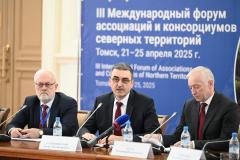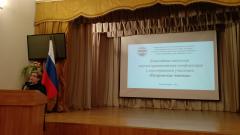
The eight Arctic states work closely together on numerous Arctic-related issues, both through the Arctic Council and in various other forums.
Between the WW II and the late 20th century, the Arctic was one of the playgrounds of the cold war experiencing nuclear armament and frozen international relations. The cold war political environment left the area distant and remote for the people outside the region and it was not until the emergence of the perestroika in the Soviet Union which gradually brought the cold war enemies closer and eventually to the same table in 1989.
The first purely Arctic oriented meeting of the eight Arctic countries took place in Rovaniemi Finland in september 1989. The topic of the meeting was the fragile Arctic environment and a potential for joint effort in tackeling the very delicate but urgent issue. After intensive cooperation for the next two years, the Arctic Environmental Protection Strategy was initiated in 1991. The AEPS concentrated on cooperation in scientific research and sharing of data on effects of pollution as well as assessing the potential environmental impacts of development activities in the Arctic through its four specific measures, namely Arctic Monitoring and Assessment Programme, Protection of the Marine Environment in the Arctic, Emergency Prevention,Preparedness and Response in the Arctic and Conservation of Arctic Flora and Fauna.
The cooperation around the AEPS was quite untraditional for many reasons. First, it was one of the first venues where the cold war parties cooperated together to reach a common goal and secondly it became one of the very few inter-governmental institutions including indigenous peoples of the region in the work from the beginning.
It became, however, soon clear that the Arctic issues and the change happening in the Arctic environment would have such an immense impact globally that it was decided that the AEPS would step aside and new inter-governmental high level forum would be created to deal Arctic environmental issues. In 1996, the Arctic Council, with membership of all eight Arctic states and permanent participation of regional indigenous peoples' associations, was established to promote cooperation, coordination and interaction in issues of sustainable development and environmental protection.
Yet a new development on the Arctic cooperation occured in May 2011, when the Arctic states signed the first legally binding agreement established under the auspices of the Arctic Council. The Agreement on Cooperation on Aeronautical and Maritime Search and Rescue in the Arctic lays down a framework to strengthen search and rescue cooperation and coordination in the Arctic airspace and waters.
In addition to the official state-level cooperation taking place in the Arctic Council, two other cooperation themes in the Arctic have been indentified by the Arctic Human Develoment Report.
The first theme focuses on the increasing circumpolar cooperation by indigenous people's organizations and sub national governments, culminating in notion "North meets North." In facing harsh socio-economic realities and degradation of human rights the Indigenous peoples and local communities have realized the value of cross border cooperation in their battle for human rights and increased socio-economic development. Organizations such as RAIPON (Russian Association of Indigenous Peoples of the North) and the Saami Council have been working towards the international recognition of indigenous people's rights and the consideration of traditional livelihoods in national politics.
The second theme focuses on the relationship between the Arctic and the outside world. The first signs of interest in the Arctic from southern latitudes were during the Cold War, because of the military issues. But the amount of natural resources and potential trans-Arctic transportation routes make the region strategically and economically relevant for most European, North-American and North-East Asian countries. The economies of the North are closely related and the importance of the Arctic region will rise due to ever increasing demand for resources. Also globalization will keep bringing in new actors to the Arctic and cooperation continues to grow in various fields in the future.
For more information on a region of your interest, please use clickable region names below.
| Arctic Council states | Northern Forum Regions | |
| Canada | Akureyri (Iceland) | Murmanskaya Oblast (Russia) - Observer |
| Greenland | Chukotskiy AO(Russia) | |
| Finland | Gangwon-do (South Korea) | |
| Iceland | Kamchatskiy Kray (Russia) | |
| Norway | Khanty - Mansiyskiy AO (Russia) | |
| Russia | Sakha Republic (Yakutia) (Russia) | |
| Sweden | Yamalo-Nenetskiy AO (Russia) | |
| United States |



























